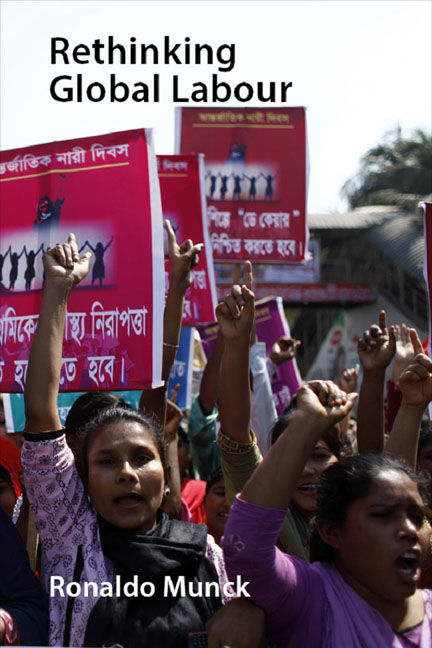4 - Workers North
Published online by Cambridge University Press: 09 August 2023
Summary
As the workers and labour movement of the Global North began to suffer under neoliberalism, the emerging new era of globalization reduced Fordism to an almost mythical status. Under the guise of “flexible specialization”, new work practices almost completely transformed the world of work. This chapter begins by examining the new model of flexible capitalist development. I also survey the newly important dimension of regionalization, both in North America and in Western Europe, which seems to go hand in hand with globalization. The key issue this chapter raises is whether in the North we now have a stable post-Fordist social regime of accumulation. Is there likely to be a new virtuous circle of capitalist growth and worker prosperity emerging in the capitalist heartlands? What have been the implications of bringing the workers of the once communist East into the capitalist orbit? Finally, what has been the trade union reaction to the new capitalism? We show how, after an era of disorientation, disorganization and demoralization during the 1980s, some new patterns of worker resistance emerged towards the end of the last century.
Flexible financial capitalism
The new growth regime that followed the collapse of the Fordist golden era was to be characterized, above all, by the dominance of finance capital. Whereas under the Fordist regulation model (see Chapter 2), in which national governments to a large extent determined financial matters, now the financial domain seemed to acquire a life of its own. The deregulation and opening up of financial markets across the West in the 1980s set up a contradiction between an unregulated global financial system and the fiscal role of the Keynesian welfare state. The booming stock markets and credit systems in the 1990s created a widespread mood of optimism about the future of capitalism. The “new economy”, as it became known, would sweep away all before it, including trade unions, and generate a new knowledge-based society. That trade unions might be seen to be part of the “old economy” based on manufacturing is testified to by the fact that in Britain in 2000, while the average age of all workers was 34 years, the average age of trade union members was 46 years.
- Type
- Chapter
- Information
- Rethinking Global LabourAfter Neoliberalism, pp. 85 - 114Publisher: Agenda PublishingPrint publication year: 2018



